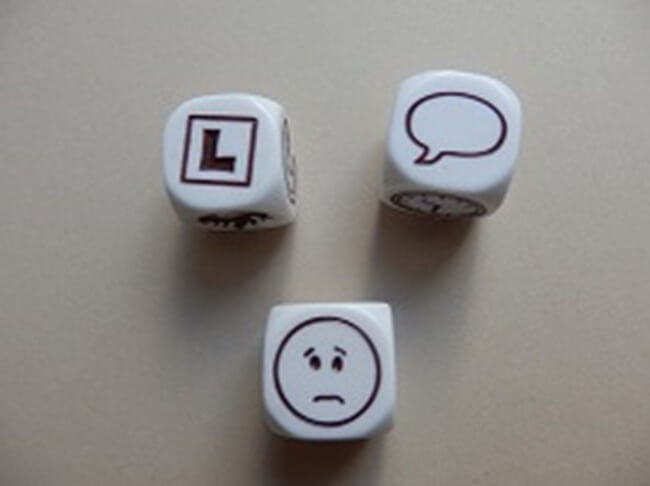Seven deadly sins that kill your grant proposal
How to get more funding? Avoid these mistakes! Writing grant proposals in life sciences is tedious, and evaluating grant proposals is even more tedious. Quite often, the reviewers end up with a small number of outstanding proposals and a vast number of excellent proposals, which have to be ranked based on tiny differences in quality.
Therefore, reviewers are very, very grateful when you show one of the sins described below because they provide perfect justifications to kill your grant proposal.
During the last 20 years, I had to evaluate hundreds of grant applications for national and European funding organizations. I spent many hours in commissions to discuss biomedical grants.
I realized that several typical mistakes are made again and again. Let me help you avoid these mistakes and increase your chances of getting more funding.
Deadly sin No. 1: Writing for expert reviewers
I am frequently surprised by how exhausting reading and analyzing grant proposals is. However, there are obvious reasons.
Please always remember that there is a good chance that your proposal is evaluated by a “generalist.” The term “generalist” means that the reviewer is rather incompetent to judge the brilliance of your ideas.
Most commissions suffer from tremendous workloads and insufficient numbers of experts for every possible submission. Thus, you may get a partially competent or incompetent reviewer.
Thus, find a good balance between explaining your concepts and methods to well-educated lay readers and experts in your field.
In addition, I have seen proposals rejected because the generalist reviewers did not get through the jungle of abbreviations, which are very clear to every expert in the field.
Thus, always write without too much jargon and abbreviations.
Deadly Sin No. 2: No hypothesis
One of the worst mistakes when writing a grant proposal is the absence of a hypothesis.
Maybe you know precisely your hypothesis, but it is not visible.
Make it easy to find the hypothesis – and mark it clearly with a title like “Working hypothesis.” Add some formatting, such as a box, if the proposal formatting guidelines allow.
Never write a hypothesis like “We have an idea, and now we will see what happens.”
Never – and I mean NEVER – write a hypothesis that includes expressions like
“The hypothesis is to study the role of our fantastic factor in XX disease” or “Our great factor modulates YY signaling.”
This is not a hypothesis. A hypothesis can be tested and falsified. It should be worded like “Our factor XX decreases mortality in YY disease.”
In order to increase the impact factor of your publication, it makes sense to include several fancy methods. However, reviewers are substantially annoyed when fancy techniques are proposed without being justified by the research question. Thus, do not propose fancy techniques just to be highly modern.
Without sound hypotheses, fancy techniques are pointless and will not be appreciated.
Deadly Sin No. 3: Screening
The third one is closely related to the first two sins: you should not propose a screening project.
Screening approaches rarely excite reviewers. Most reviewers of grant proposals want to become excited and entertained by the great new ideas you are proposing.
I am aware that most genetic and proteomics approaches qualify for sin No 3 – however, these may be exceptions. Similarly, developing highly innovative methodologies that have never been done before or are the newest on the market is fundable.
Depending on the board or commission where your proposal is discussed, the reviewers may appreciate proteomics or genetic screening approaches. However, an intelligent hypothesis always helps to sell your idea.
Deadly Sin No. 4: Annoy the reviewer with sloppiness
As a reviewer, I find it most annoying when proposals are incomplete, or information is chaotically provided or missing.
For example, when I have to look up the impact factors, although the applicant should provide them. Similarly, when I have to search for information in multiple, separately saved attachments or in a complex email exchange between the funding organization and the applicant.
This costs a lot of time, and the reviewer will be less in favor of your fantastic ideas.
Finally, if your proposal is full of typos and grammatical or formatting errors, the reviewers will be annoyed and presume that your research is also done poorly. Simply use Grammarly or languagetool to get rid of most of these errors.
Deadly Sin No. 5: Being arrogant or overambitious
I think this should be self-explanatory.
However, again and again, I read grant proposals that claim that the applicant is the most qualified person in the world (“Nobody else can do it”).
Reviewers hate that because most of them have been forced to become modest during their careers.
Even in those rare cases when such extreme claims are justified you should be careful to make such a statement. These proposals often suffer from other weaknesses, which will weigh even more when contrasted with such a statement.
It may also be interpreted as a sign of arrogance or egocentricity to propose a project that costs 2 million dollars, although the maximum amount available is about 600K.
A similar problem is being overambitious. Can a single PhD student analyze three different knockout animals in 5 different models in a 4-years project?
Can a postdoc analyze a zebrafish, rodent, and human model in 2 years?
In such cases, either the PhD student or postdoc has an unrealistic idea of their capacities, or the supervisor did not read the proposal well.
Deadly Sin No. 6: Out of scope
When you submit to a funding organization that funds primarily applied science, you should not propose fundamental or clinical research (e.g., “new therapeutic strategies to avoid pre-eclampsia”).
Applied research will not be appreciated by a commission that funds basic research (e. g., developing a specific device to measure blood sugar).
Every year, I see a handful of excellent proposals sent to the wrong commission.
Do not waste your time – and do not waste the reviewers’ time – check the scope of each call carefully.
Deadly Sin No. 7: Propose new and challenging research
This sin appears absurd at first sight – but the worst sin of all is proposing a new and exciting project that you really want to start right now. You may get high scores for innovation but lose the grant because the reviewers do not believe that you can do it. There are several typical reasons:
- The reviewers will hate it if you do not have preliminary data and might nt believe your hypothesis.
- If the project is very challenging, you may get low scores in feasibility because the reviewers do not believe you have the technical ability or infrastructure to finish the project.
- The reviewers will typically criticize you for not having track records in the field because they do not believe you have enough experience, background, and support from the rest of the community in this field.
- If your research field is really new they may even question the relevance because nobody else is doing research on this.
Thus, ensure that you can provide preliminary data, that your project does not look too crazy, and put effort into describing the experiments’ feasibility.
I have used AI systems, including Grammarly, Google Gemini, and ChatGPT, to enhance the English and comprehensiveness of this article. This post may contain affiliate links, meaning I get a small commission if you decide to purchase through my link. Thus, you support smartsciencecareer at no cost to you!
Recommended reading
The following articles may also interest you:
- Research funding – Should I submit grant proposals under my supervisor’s name?
- 10 simple strategies to increase the impact factor of your publication
- 28 Tips to Get More Citations for Your Publications
- How To Write Faster: 19 Efficient Ways To Finish My Publication
- Corresponding author versus senior author – what is the difference?
- Which bibliometric data are relevant for a research career?
- Do I need nature or science papers for a successful career in science?
- Should I publish negative results, or does this ruin my career in science?
- Is being a professor worth it?
- What is tenure?
- What is a postdoc?
- How long does it take to complete a doctorate?




Hello Sven,
you hit the bull’s eye! I absolutely agree with your statement as I got the same notion. I would ad an advice: take your time to look for an expert person who is willing to discuss your proposals! Corinna
Thanks a lot! And I fully agree!
Congrats on the new blog! Perhaps Deadly Sin # 7 deserves a blog post in itself because the opposite advice is equally true.
Thanks Karen, I completely agree – and the blog post will follow!
Congrats on the new blog Sven!
You hit the ball and translate with many of us think.
Geert VM
Thanks a lot!
Sven
Couldn’t agree more with emphasis on writing for a general audience, particularly when it comes to national or regional innovation funding. Like any piece of good writing, it’s essential to grab attention in the summary or opening paragraphs.
I’d also add an “eighth sin” of poor definition/lack of clarity of the problem or the market application of the research or innovation is supposed to address.
Great point. Thanks a lot for adding this aspect!